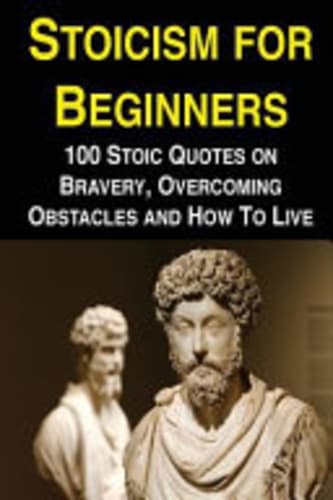
Stoicism for Beginners
100 Stoic Quotes on Bravery, Overcoming Obstacles and How to Live
The Stoics taught that destructive emotions resulted from errors in judgment, of the active relationship between cosmic determinism and human freedom, and the belief that it is virtuous to maintain a will that is in accord with nature. Because of this, the Stoics presented their philosophy as a way of life, and they thought that the best indication of an individual's philosophy was not what a person said but how that person behaved. To live a good life, one had to understand the rules of the natural order since they taught that everything was rooted in nature. Later Stoics-such as Seneca and Epictetus-emphasized that, because "virtue is sufficient for happiness," a sage was immune to misfortune. This belief is similar to the meaning of the phrase "stoic calm," though the phrase does not include the "radical ethical" Stoic views that only a sage can be considered truly free, and that all moral corruptions are equally vicious. From its founding, Stoic doctrine was popular with a following in Roman Greece and throughout the Roman Empire-including the Emperor Marcus Aurelius.
Stoicism for Beginners
100 Stoic Quotes on Bravery, Overcoming Obstacles and How to Live
